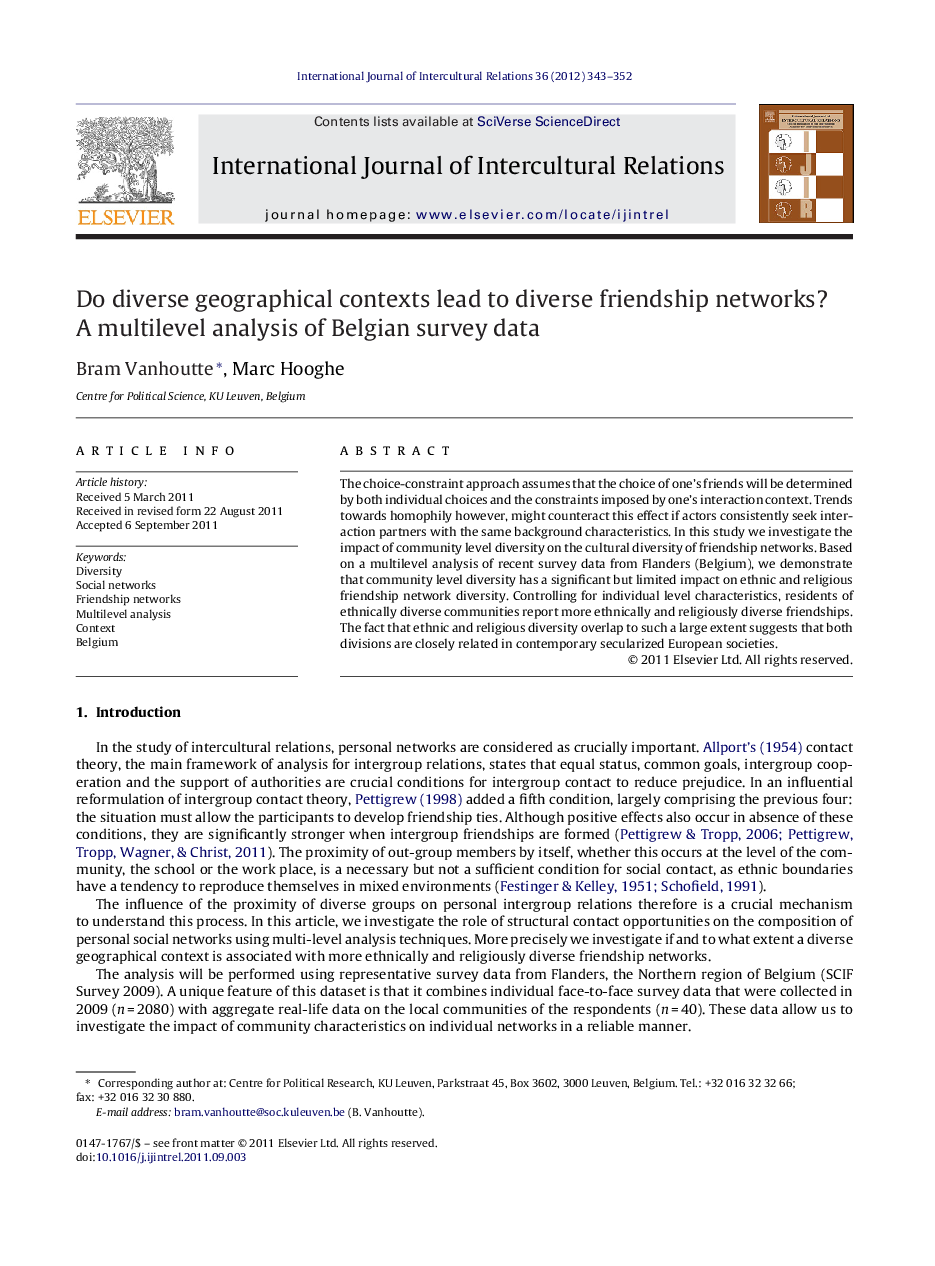| Article ID | Journal | Published Year | Pages | File Type |
|---|---|---|---|---|
| 947336 | International Journal of Intercultural Relations | 2012 | 10 Pages |
The choice-constraint approach assumes that the choice of one's friends will be determined by both individual choices and the constraints imposed by one's interaction context. Trends towards homophily however, might counteract this effect if actors consistently seek interaction partners with the same background characteristics. In this study we investigate the impact of community level diversity on the cultural diversity of friendship networks. Based on a multilevel analysis of recent survey data from Flanders (Belgium), we demonstrate that community level diversity has a significant but limited impact on ethnic and religious friendship network diversity. Controlling for individual level characteristics, residents of ethnically diverse communities report more ethnically and religiously diverse friendships. The fact that ethnic and religious diversity overlap to such a large extent suggests that both divisions are closely related in contemporary secularized European societies.
► More diverse communities are associated with more ethnically and religiously diverse friendship networks. ► Younger, male or highly educated respondents report more culturally diverse friendship networks. ► The analysis supports the assumption of the choice-constraint approach that actors are limited in their choice of network partners by community characteristics. ► Results confirm the notion that minority members have much more diverse friendship networks than majority members.
